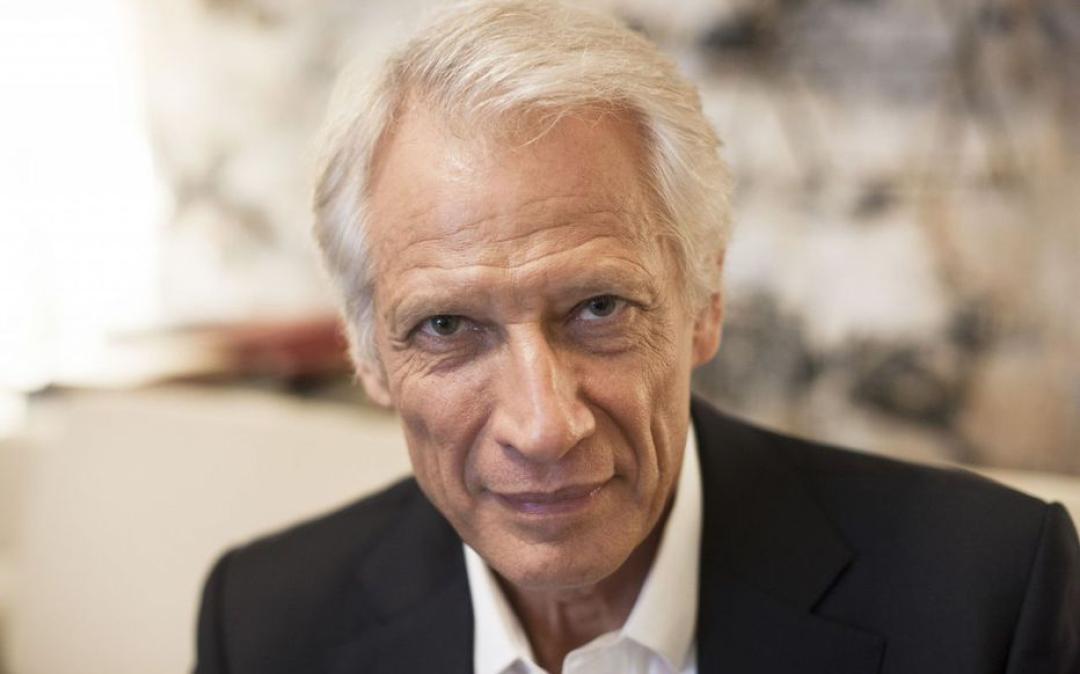
Former French Prime Minister tasked with attracting foreign investment in Armenia

On 23 July, the Armenian National Interests Fund (ANIF) appointed the former French Prime Minister Dominique de Villepin as a member of the governing board, reported the Armenian Radio Free Europe.
The ANIF is a national fund created by the government of Armenia in May 2019 with the main goals of developing Armenia's economy through attracting foreign investments into the most promising sectors and crucial infrastructure; supporting the improvement of the investment climate in Armenia and creating stable and favorable conditions for large and small businesses alike; creating large-scale jobs in the long term to increase the quality of life for the Armenian communities. It focuses on investment projects that exceed $10 million. The main economic branches in which the fund is active are: transport and infrastructure, energy, industrial production, construction and materials, consumer goods, healthcare, information technologies, financial services and agriculture.
"As ANIF, chaired by the honorable Deputy Prime Minister Tigran Avinyan, begins to assemble what will be a world class board of directors, the appointment of Prime Minister Dominique de Villepin sets the bar very high. We are honored to count Mr. De Villepin amongst our colleagues at ANIF and as an ally of the Republic of Armenia. ANIF is especially thankful to the honorable President Armen Sarkissian for introducing us to Mr. De Villepin” said Chief Executive Officer of ANIF David Papazian.
Villepin himself said that his appointment marks the beginning of a new and exciting journey and noted that Armenia’s GDP growth of 7.1% in the first quarter of 2019 are indicators of a bright future. He also praised the process of “political rejuvenation in the country” pointing out that the CEO of ANIF Papazian is 37 years old and Deputy Prime Minister Avinyan is 30 years old.
Dominique de Villepin studied at the Institut d'Études Politiques de Paris (Sciences Po) and went on to the École nationale d'administration (ENA), France's highly selective postgraduate school which trains its top civil servants. Villepin was introduced to Jacques Chirac in the early 1980s and became one of his advisers on foreign policy. In 1993 he became chief of staff (directeur de cabinet) of Alain Juppé, the Foreign Minister in Édouard Balladur's cabinet, who was Chirac's political heir apparent. Villepin then became director of Chirac's successful 1995 presidential campaign and was rewarded with the key job of Secretary-General of the Élysée Palace during Chirac's first term as President of the Republic (1995–2002). He advised the president to hold an early general election in 1997, while the French National Assembly was overwhelmingly dominated by the President's party. This was a risky gamble, and Chirac's party went on to lose the elections.
He was appointed Minister of Foreign Affairs by Chirac in the cabinet of Prime Minister Jean-Pierre Raffarin at the beginning of Chirac's second term in 2002. During the 2004 coup d'état in Haiti, Villepin obtained the backing of the United States Secretary of State Colin Powell in his bid to oust Jean-Bertrand Aristide from power. Villepin's most famous assignment as Chirac's Foreign Minister was opposing the U.S. plan to invade Iraq, giving France a leading role in the grouping of countries such as Germany, Belgium, Russia and China that opposed the invasion. The speech he gave to the UN to block a second resolution allowing the use of force against Saddam Hussein's regime received loud applause.
From 2004 to 2005 Villepin was the Interior Minister of France. He commited his mandate in combating radical Islam and included mandatory courses for Muslim clerics, notably in the French language, in moderate Muslim theology and in French secularism. He also cracked down on radical Muslim clerics, causing uproar when he tried to expel Abdelkader Bouziane, an imam alleged to have said to the press that, according to ancient Islamic texts, adulterous people could be whipped or stoned. When the decision to expel him was overturned by the courts, because the journalistic reporting of LyonMag was deemed biased, Villepin pushed a change of the law through Parliament, and Bouziane was sent home.
From 2005 to 2007 Villepin was the Prime Minister of France. His main goal was to combat unemployment in France which was hovering above 10% during that time. In 2005 he issued ordinances establishing a new kind of work contract (called CNE) for small enterprises, with fewer guarantees than ordinary contracts. In 2006 he announced a similar kind of work contract (called Contrat première embauche, or CPE) for young people (under 26) which sparked student protests in the country and prompted the government to hinder the policy’s application resulting in a drastic drop in his popularity rates.
See Also


Simonyan: “Armenia Should Trade with Turkey and Azerbaijan Instead of Closing Borders”

Mirzoyan Meets US Deputy Assistant Secretary Joshua Huck

Azerbaijani President Holds Talks with UAE and German Business Delegations on Economic Cooperation

Grigoryan Confirms Armenia’s Readiness to Dissolve OSCE Minsk Group Upon Peace Treaty Signing

